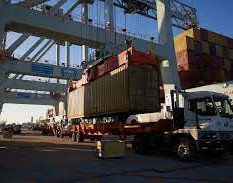U.S. Treasury Secretary Janet Yellen has proposed friend-shoring as a means of isolating global supply chains from external disruptions or economic coercion. It is the decoupling that is likely to lead to short-term supply shocks and higher prices, developments not unlike those produced by the turbulence of recent years. In the long run, the outcome is likely to be lower economic growth due to loss of efficiency, higher costs and supply bottlenecks. [What 'Friend-Shoring' Means for Trade in a Less ... - The Washington Post]
Over the past few years, the world has experienced an escalating series of trade disruptions -- the US-China trade war, the Covid-19 pandemic and the supply-chain disruptions it caused, Russia’s invasion of Ukraine and the dueling sanctions and export controls that followed. Their cumulative impact has called into question the vision of a globalized economy. In response, some US officials are pushing “friend-shoring” -- a happy-sounding label for a world divided between free-market democracies and countries that align with the authoritarian regimes of China or Russia. It’s a world in which supply chains could be more robust and less subject to economic blackmail. It’s also likely a world that’s poorer and less productive.
- What is friend-shoring?
US Treasury Secretary Janet Yellen has proposed friend-shoring as a means to insulate global supply chains from external disruption or economic coercion. The idea is for a group of countries with shared values to deploy policies encouraging companies to spread manufacturing within that group. The goal is to prevent less-like-minded nations from unfairly leveraging their market position in key raw materials, technologies or products to disrupt the US economy or those of its allies. It’s one of several twists of the term off-shoring -- the large-scale push by companies earlier in the century to move what operations they could to places where it was cheaper to operate. Another iteration is “re-shoring.”
- What’s an example of something to friend-shore?
The US aims to reduce dependence on authoritarian regimes for key products like rare earths, magnets and other items that can be adapted for military purposes. The push will also seek to diversify away from Russian suppliers of critical commodities, particularly energy, food, and fertilizer. In some areas, such as semiconductors, the idea is to diversify sources among friendly nations. The US is heavily reliant on Taiwan, which faces security pressures from mainland China; the US has recently stepped up engagement on chips with South Korea.
- Who would be the winners in friend-shoring?
Indonesia, Malaysia, Vietnam and other Indo-Pacific countries would likely benefit as production plants, jobs and investments move toward nations deemed to be “trustworthy” by the US and its allies. Diversifying the geographic concentration of global supply chains will also help businesses become more resilient to external shocks like wars, famine, political changes or the next pandemic.
- Who would lose out?
The US-led effort is mainly targeted at non-market economy regimes like China that the US sees as unfairly supporting their domestic industries and at nations that violate international norms, like Russia. Such countries would see an economic hit as investments and jobs shift toward other regional trade partners. And, of course, there would be repercussions for the countries within a friend-shoring alliance.
- What would the impact be?
A process that some are calling de-globalization and that others have called decoupling would likely lead to short-term supply shocks and higher prices -- developments not unlike those produced by the turmoil of recent years. In the long run, the outcome is likely to be lower economic growth due to lost efficiencies, higher costs and supply bottlenecks. That’s why Yellen expressed the hope that China would take Western human rights and national security concerns seriously, to “preserve the benefits of deep economic integration with China -- not going to a bipolar world.”


